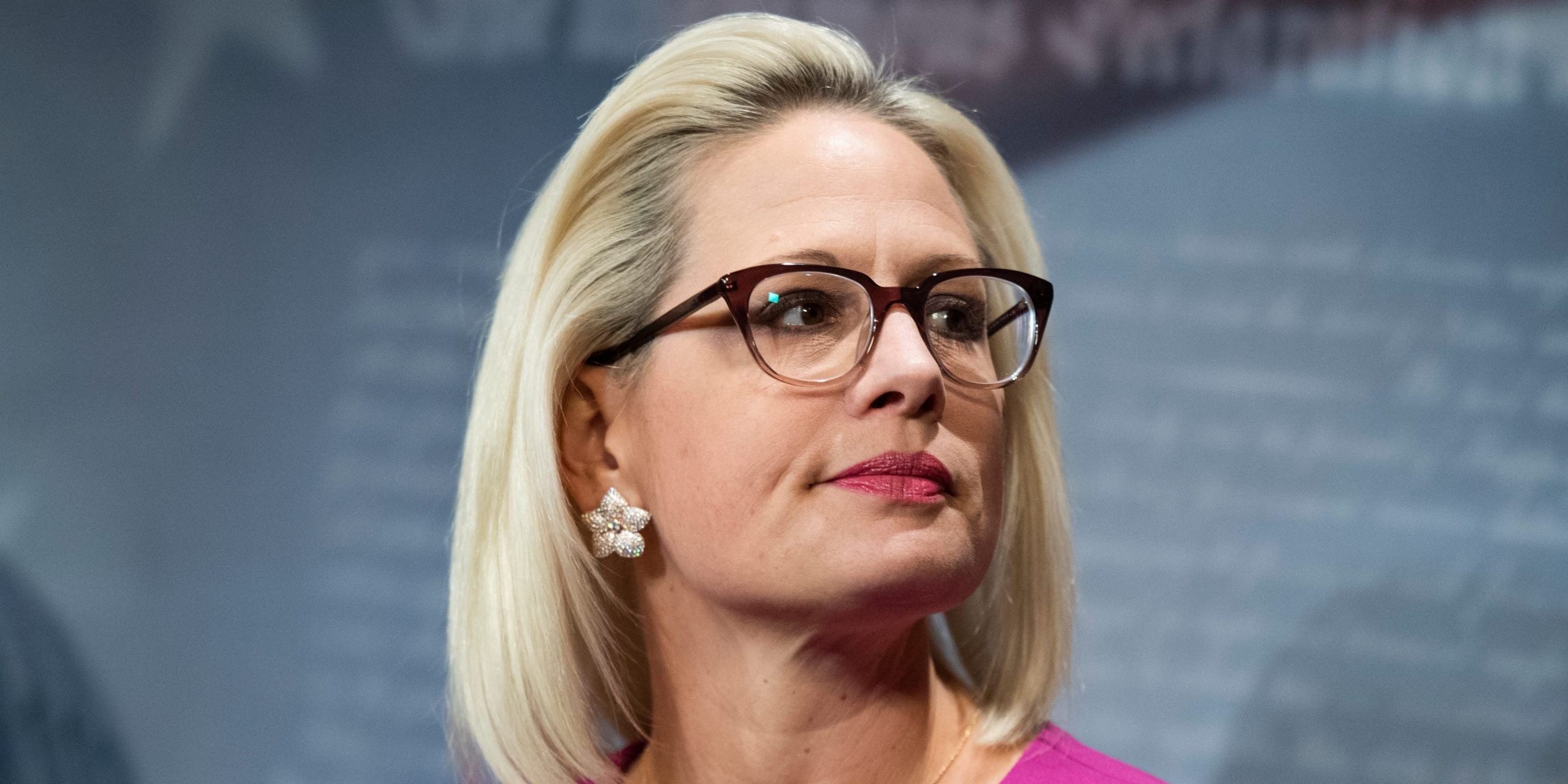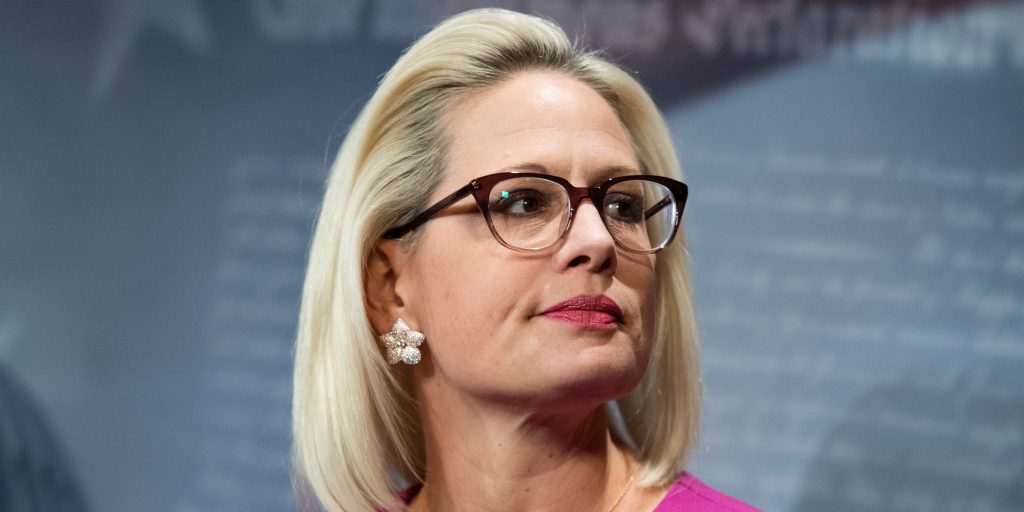
Tom Williams/CQ-Roll Call Inc. via Getty Images
- Sen. Kyrsten Sinema is digging in on her opposition to a $3.5 trillion party-line spending plan.
- Her opposition could force Democrats to scale back ambitions to get Sinema's vote, a critical one in the 50-50 Senate.
- Sen. Joe Manchin is another moderate expressing unease over the cost of a plan to expand healthcare and education.
- See more stories on Insider's business page.
Sen. Kyrsten Sinema of Arizona is doubling down in her opposition to the $3.5 trillion price tag of a party-line spending plan Democrats are assembling to secure much of President Joe Biden's economic agenda. It may compel Democrats to dramatically scale back their ambitions in order to get her support.
This comes as Speaker Nancy Pelosi faces off with a bloc of 9 moderate House Democrats over the party-line budget plan. Those Democrats are threatening to withhold support from the budget blueprint unless a $1 trillion infrastructure bill that recently passed the Senate reaches Biden's desk first.
The showdown could stall or even derail the president's economic agenda.
On Monday, House Democrats are reconvening to vote on a rule setting the boundaries of debate and further consideration of the budget plan, along with the $1 trillion infrastructure bill. Pelosi wants both measures to pass the House by October 1.
Sinema had previously indicated she would not back a $3.5 trillion plan, which could pave the way for Medicare's expansion, initiatives to combat the climate crisis, set up affordable childcare and tuition-free community college.
"Proceedings in the U.S. House will have no impact on Kyrsten's views about what is best for our country - including the fact that she will not support a budget reconciliation bill that costs $3.5 trillion," Sinema spokesperson John LaBombard told Politico.
Her opposition could force Democrats to pursue big cuts to get Sinema's vote, a critical one in the 50-50 Senate. The party is using an arduous procedure known as reconciliation to secure its passage with only a simple majority instead of the 60 votes typically needed in the Senate - and sidestep what's likely to be unanimous GOP opposition.
All 50 Senate Democrats must support the plan for it to clear the upper chamber with Vice President Kamala Harris's tiebreaking vote. Still, at least one other key Senate Democrat has also signaled unease with the hefty price tag.
"I firmly believe that continuing to spend at irresponsible levels puts at risk our nation's ability to respond to the unforeseen crises our country could face," Sen. Joe Manchin of West Virginia said in a statement earlier this month.

